- Monthly house price growth of 1.4% the biggest increase for six months
- Average property price reaches another new record high of £282,753
- Two years on from the first lockdown, house prices have now risen by £43,577
- South West overtakes Wales as UK area with strongest house price inflation
- Cost of living pressure likely to slow the rate of house price growth this year
Average price: £282,753
Monthly change: +1.4%
Quarterly change: +2.3%
Annual change: +11.0%
Average UK house prices rose again in March for the ninth month in a row.
The increase of 1.4%, or £3,860 in cash terms, was the biggest jump since last September.
With 2021’s strong momentum continuing into the beginning of this year, the annual rate of house price inflation (+11.0%) continues to track around its highest level since mid-2007.
The new record price of £282,753 is up some £28,113 on a year ago, not far off average UK earnings over the same period (£28,860*).
The story behind such strong house price inflation remains unchanged: limited supply and strong demand, despite the prospect of increasing pressure on households’ finances.
Although there is some recent evidence of more homes coming onto the market, the fundamental issue remains that too many buyers are chasing too few properties.
The effect on house prices makes it increasingly difficult for first-time buyers looking to make their first step onto the ladder, but also challenges homemovers who face ever bigger leaps to move up the rungs to a larger property.
However, in the long-term we know the performance of the housing market remains inextricably linked to the health of the wider economy.
There is no doubt that households face a significant squeeze on real earnings, and the difficulty for policymakers in needing to support the economy yet contain inflation is now even more acute because of the impact of the war in Ukraine.
Buyers are therefore dealing with the prospect of higher interest rates and a higher cost of living.
With affordability metrics already extremely stretched, these factors should lead to a slowdown in house price inflation over the next year, Russell Galley, Managing Director, Halifax commented.
Lockdown: two years on
March 2022 marked two years since the UK first entered lockdown. At that time, faced with huge levels of economic uncertainty, few could have anticipated just how resilient the housing market would prove to be.
Overall, the average house price has risen by 18.2% over that period, or £43,577 in cash terms.
This has taken the national average house price from £239,176 in March 2020 to £282,753 in March 2022.
The impact of the pandemic on buyer demand can be seen most clearly when looking at different property types.
With a premium now put on those properties offering greater space – both indoors and out – prices for flats have increased by 10.6% or £15,404 over the last two years.
Compare this to the average price of a detached property which has leapt by 21.3% or £77,717 over the same period.
Regions and nations house prices
The South West of England has overtaken Wales as the UK’s strongest performer in terms of annual price house inflation, now up to 14.6%, its highest rate of annual increase since September 2004.
The average house price is now £298,162, a record for the region.
While this is the first time since January 2021 that Wales has not recorded the UK’s highest annual growth, house price inflation remains extremely strong, at 14.1%.
The average house price is £211,942 which is yet another all-time high for the country.
Property prices in Northern Ireland also continue to be on the rise, with annual growth now at 13%, and an average price of £177,265.
Though house prices also edged up once more in Scotland – reaching a new record of £194,621 – the rate of annual growth continues to slow somewhat, falling to 8.2% from 9.3% last month.
Elsewhere, the South East also recorded a big increase, with house price growth at 11.6% and an average price of £385,790.
Prices in the region have now risen by £40,177 over the last year, the first time any English region outside of London has ever posted a £40,000-plus rise over just 12 months.
London itself continued its recent upward trend, with prices now up by 5.9% year-on-year, with an average price of £534,977.
Housing activity
HMRC monthly property transactions data shows UK home sales increased in February 2022.
UK seasonally adjusted (SA) residential transactions in February 2022 were 112,240 – up by 4.4% from January’s figure of 107,490 (up 15.3% on a non-SA basis).
Quarterly SA transactions (December-February 2022) were approximately 4.8% lower than the preceding three months (September 2021-November 2021).
Year-on-year SA transactions were 20.8% lower than February 2021 (20.6% lower on a non-SA basis). (Source: HMRC)
Latest Bank of England figures show the number of mortgages approved to finance house purchases fell in February 2022, by 4% to 70,993.
Year-on-year the February figure was 18% below February 2021. (Source: Bank of England, seasonally-adjusted figures)
In the latest RICS Residential Market Survey, a net balance of +17% respondents cited an increase in new buyer demand during February – a sixth consecutive month in positive territory (previously +14%).
Agreed sales moved into positive territory for the first time since May 2021, with the latest net balance standing at +9% (compared to – 1% previously).
New instructions however remain in negative territory for an eleventh consecutive month at -4% (-7% previously). (Source: Royal Institution of Chartered Surveyors’ (RICS) monthly report)
Managing Director of Barrows and Forrester, James Forrester, commented:
An unwavering level of market activity has continued to drive house price appreciation in 2022 and this further growth comes off the back of a pandemic property market boom that had already pushed property prices to record highs.
Buyer demand remains extremely high and with a lack of stock to meet this demand, there’s no end in sight when it comes to the current state of the market.
Even fears around the increasing cost of living and a number of interest rate increases are yet to make a dent and so the outlook for the year ahead is a positive one where market values are concerned.
Director of Benham and Reeves, Marc von Grundherr, commented:
A monthly look at house price growth is far too volatile a metric to judge wider market health upon.
However, yet another double digit annual increase is the real proof in the pudding and demonstrates a market that is flying high, even when compared to the strong performance posted this time last year.
The returning health of the London market has no doubt contributed to this.
While the wider UK market was more than holding its own during much of the pandemic, this strong performance is now being bolstered by growing momentum across what is traditionally the powerhouse of UK property.
A return to the workplace and an influx of foreign demand are starting to stimulate property values across the capital and this will ensure that top line house price growth remains robust for the remainder of this year.”
Director of Henry Dannell, Geoff Garrett, commented:
Despite a string of interest rate increases and the inevitable impact this has had on monthly mortgage costs, the nation’s homebuyers are seemingly undeterred and continue to flood the market at mass.
However, the general consensus is that this squeeze on mortgage affordability coupled with the increase in living costs will start to cool the current rate of house price growth as the year goes on.
While this may not be substantial enough to reverse the upward house price trends being seen at present, it’s almost certainly going to slow what have been some meteoric rises in recent months.
Walid Koudmani, chief market analyst at financial brokerage XTB comments:
The Halifax HPI index continued to show the recent trend of rising prices across sectors with another increase in house prices and monthly house price growth of 1.4%, the biggest increase for six months.
While other sectors like energy and food have been consistently increasing, the housing market may begin to suffer a slowdown in demand if the current rate of increase continues as more consumers start to struggle to enter the market.
On the other hand, demand at current levels remains high and could sustain a continuation of this trend despite measures by the central bank designed to mitigate inflation.
Gareth Lewis, commercial director of property lender MT Finance, says:
Yet again the gap between supply and demand is pushing up prices.
With the cost of living also rising, this is creating more issues in property chains with buyers having to find more money to purchase a property.
Those who are trying to move up the ladder are finding it harder still as the trading gap grows wider; while their home has gone up in value, so has the one they are trying to buy so it will cost considerably more.
First-time buyers are being squeezed left, right and centre, needing more money for a bigger deposit while the cost of living is also going up exponentially.
It becomes a vicious circle which should inevitably stem the flow of property transactions.
Something needs to be done to stimulate the market so that more people are able to buy, with the lack of housing being built in the first place an issue in urgent need of addressing.
Alex Lyle, director of Richmond estate agency Antony Roberts, says:
The housing market has been stubbornly short on supply but more stock is becoming available, particularly in the mid- to upper-family house market.
This time of year plays its part in that, as well as some sellers bringing forward plans in the hope of benefiting from what could turn out to be a real window of opportunity.
London continues its upwards trend in prices, with the family house market doing particularly well, with large numbers of viewings, multiple offers and sealed bid scenarios common.
Flats can easily get stuck if pricing is too ambitious or inflated.
This strong level of demand is likely to remain over coming months but more stock is required across all price ranges for that demand to remain committed.
The rising cost of living, increases in interest rates and conflict abroad may in time dent confidence and impact sales volumes.
Mark Harris, chief executive of mortgage broker SPF Private Clients, says:
Halifax reports yet another uplift in property prices as demand continues to outstrip supply.
Lenders are still keen to lend and have plenty of cash available to do so, enabling borrowers who may be sitting on considerable savings accrued during lockdown to stretch themselves to afford a bigger property.
There has been wide speculation that higher fixed costs such as the hike in national insurance contributions and increase in general cost of living will impact affordability calculations when it comes to getting a mortgage.
If costs are going up, it stands to reason that this will impact borrowers as there is less money available to service the mortgage.
But for now, borrowers are taking advantage of low mortgage rates with some lenders, such as Halifax and Scottish Widows, increasing loan-to-income multiples from 4.49 to 4.75 per cent for higher earners.
Jeremy Leaf, north London estate agent and a former RICS residential chairman, says:
These numbers are very strong but mostly reflect activity of the past few months.
Since then we’ve noticed, on the ground, how rising interest rates, inflation and energy costs in particular, exacerbated by the war in Ukraine, have taken their toll.
There is still plenty of market resilience and demand for correctly-priced houses and flats but increasingly stretched affordability is inevitably putting a break on price growth and transaction numbers.


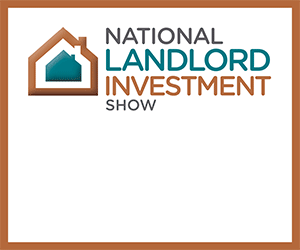
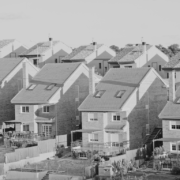







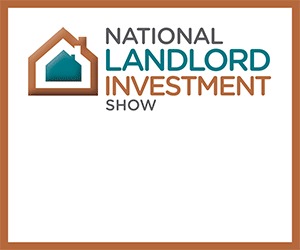




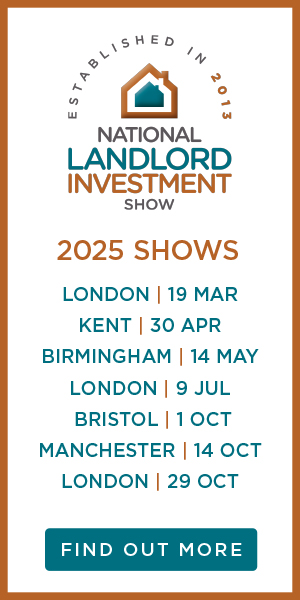
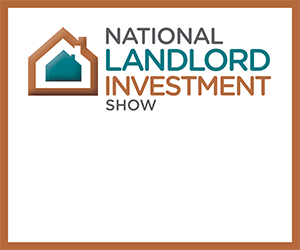
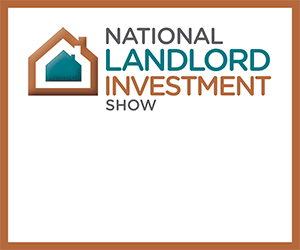





Comments